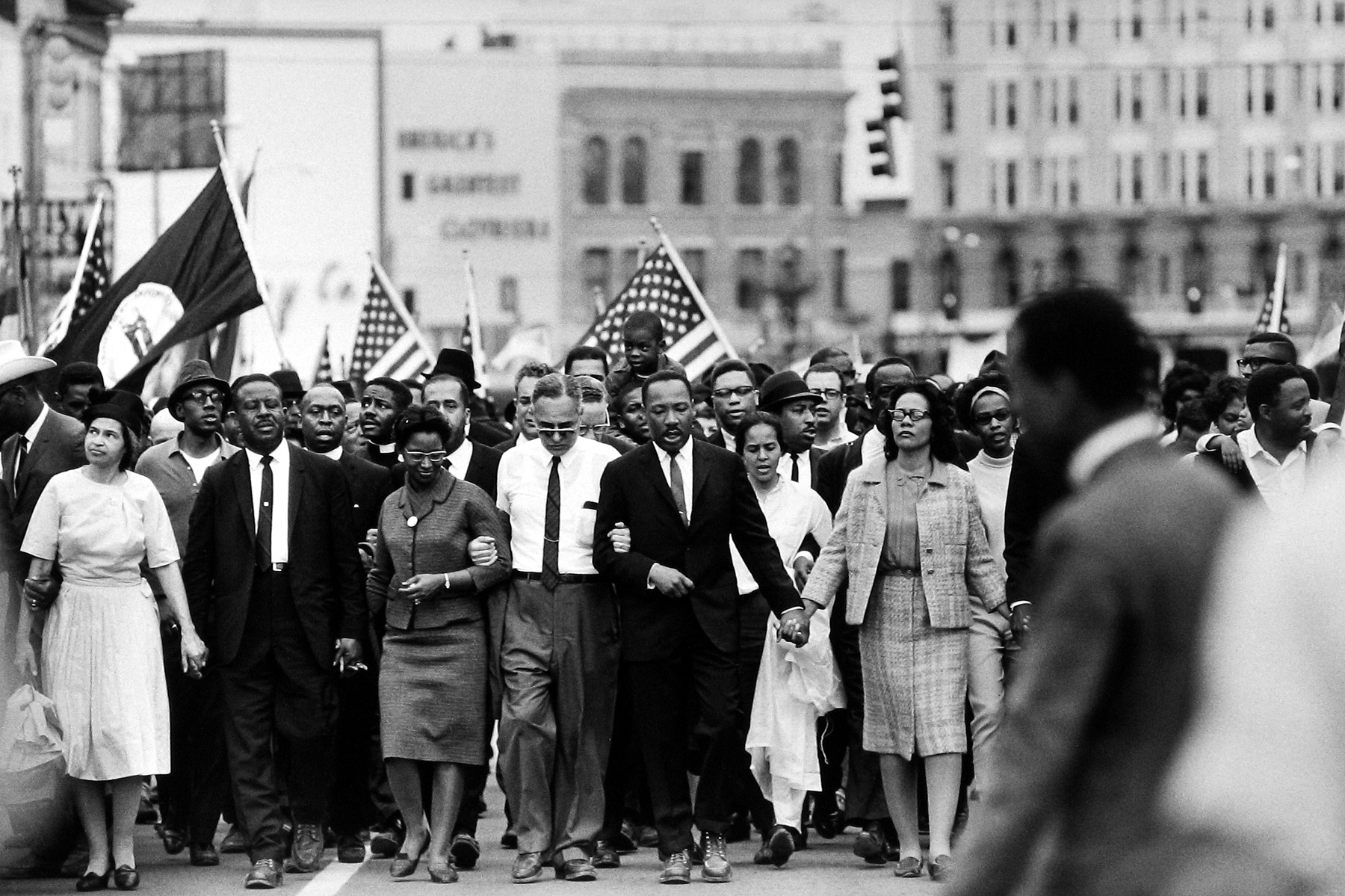I was in fourth grade when I first learned that the KKK still existed. Up until then, I believed that the group was an ugly blip in the history of the United States, vanished after the end of the Civil Rights movement of the 1960s, just like segregated water fountains, bus-seating and racism in general.
I would continue to believe that America was more or less post-racial and post-racist until I entered high school where I learned about events such as the Tuskegee Syphilis Experiment, or the clause in the 13th Amendment that allowed the enslavement of black people to continue through prison labor.
I also never thought it strange that my education on the Civil Rights movement always ended at the assassination of Martin Luther King Jr., a conclusion so unimaginably lacking, it baffles me that I didn’t question it, but to grow up white in America is to discover slowly, or not at all, that racism is still alive and well in this country, not just as an exception to the rule, but the bedrock of the rule itself.
If America can ever hope to eradicate the systemic racism that infects this country, we need to reform the way people teach history. A comprehensive curriculum including and recognizing this country’s sins honestly and directly is the first step in instituting change.
What is racism in America, and who can be racist? When I was in eleventh grade, I got into an argument with my friend about whether or not you could be racist towards white people. I argued that you could, and she maintained that racism was not something that happened to white people, because white people have never been true victims of oppression in America.
I realized later that I had been very wrong, and that my understanding of the conceptual definition of racism was incomplete.
Most of us learn the textbook definition of racism growing up: “Prejudice, discrimination, or antagonism directed against someone of a different race based on the belief that one’s own race is superior.” This is straightforward but, like any definition, it’s open to misinterpretation.
No white person in America has ever truly been on the receiving end of racism, which makes it easy for white people to believe they could have been. If someone describes a rhino to you, but you’ve never seen a rhino, not even a picture, and you try to draw what you believe a rhino looks like based off its definition, you’re going to have a distorted image—such is white people’s understanding of racism.
When a black person judges a white person based on the color of their skin, it is not comparable with a white person doing the same. White people have historically dominated race by violently and systematically oppressing black people in America.
The same cannot be said in the opposite direction, so a white person’s discrimination against a black person carries more weight and is more threatening, while a black person’s judgment of a white person can be framed as fairly reasonable considering the history.
An accurate understanding of racial history in America up until now is the only way people can properly navigate present problems. No modern event or belief exists in a vacuum. Things don’t just happen for no reason, and understanding what’s happened in the past to set up what’s going on now is crucial for navigating modern racial issues.
Take, for example, the long-standing stereotype that black men are especially and inherently violent. It’s no secret that black men are far more likely to go to prison than white men, but why is that? After the end of the Civil War and the abolition of slavery, southerners found their entire economic and social hierarchy upended.
Their economy had depended on free labor allowed by the enslavement of black people. Southern legislators found a way around the problem using the prison system, which allowed prisons to rent their inmates to companies, who were allowed to put them to work without wages. Low and behold, black men were being arrested left and right.
They were labeled as especially violent and hyper-sexual, and painted as a threat to white women and the community. Black men could be imprisoned, or lynched, for virtually nothing.
Considering this, why should anyone be surprised that police officers continually kill and arrest black people for things white people would live through or walk free from? Violent or murderous white people have been chased down and arrested without a single shot fired, while black people have continually died during events that are as routine as traffic stops, a minor selling loose cigarettes, or a non-criminal simply walking down the street.
Still, many white people believe the issue is with black people, that there’s a crime problem specific to the black community and that it’s their own responsibility to fix it. This misconception fails to recognize a multitude of historical influences on crime in black communities, but most notably ignores that the system America has in place today has not changed much since the 1870s.
The prison system still takes in a disproportionate number of black people—often for crimes white people are let go from — and private prisons put their inmates to work for below-minimum wages. It’s the same system, but it’s just gotten subtler.
In Germany, kids learn about the Nazis from their families and at school. They are taught about the horrors of the Holocaust and are instilled with a responsibility to not let history repeat itself again. Can Americans say the same about they’re own crimes? America doesn’t stress the criminality of its past actions enough.
Fox News pundits still get on air and debate whether or not slavery was really that bad. Black people go so far as to form movements and entire organizations to speak out against racism, to stand up and remind people their lives matter, but people still negate them.
So many Americans don’t believe in their experiences because too many people think they’re beyond race, that they’re not responsible for their collective past, that it’s not happening now and could never happen again. They’re wrong. Racism didn’t end with Martin Luther King Jr. It didn’t end with the abolition of slavery. It exists like a cancer within the bones of this nation, and people have to recognize the disease if they’re going to do anything about it.
I’m not optimistic that America can pass the level of educational reform necessary to achieve this goal at the moment in time, especially with someone like Betsy DeVos as the Secretary of Education, but people shouldn’t give up on educating themselves and striving towards that goal.
Read books such as “The New Jim Crow,” and check out articles such as “The First White President.” Then dig deeper. Listen to black people when they tell you about their experiences, and interrogate your own beliefs when you find they don’t match the reality. Fighting systemic racism starts with seeing it. Let’s learn now.

















